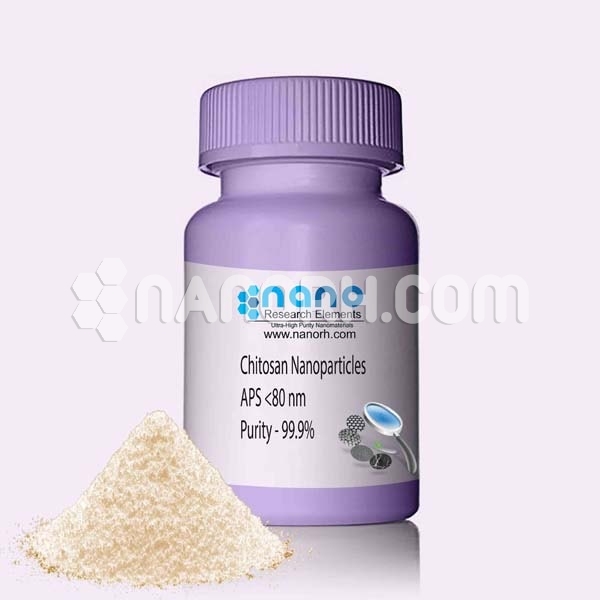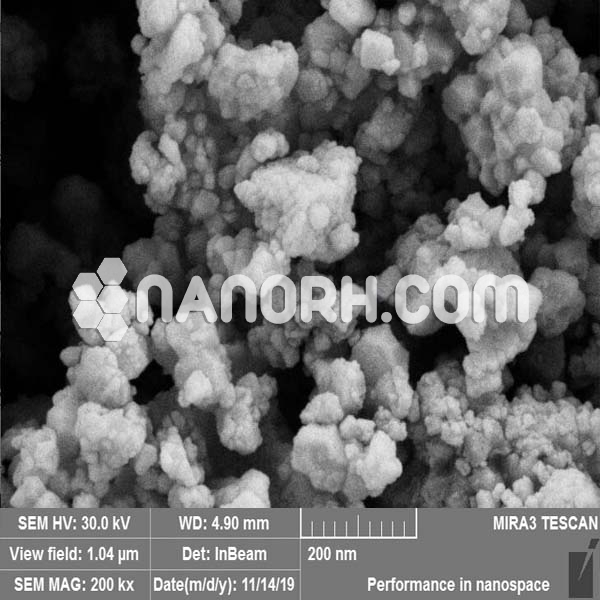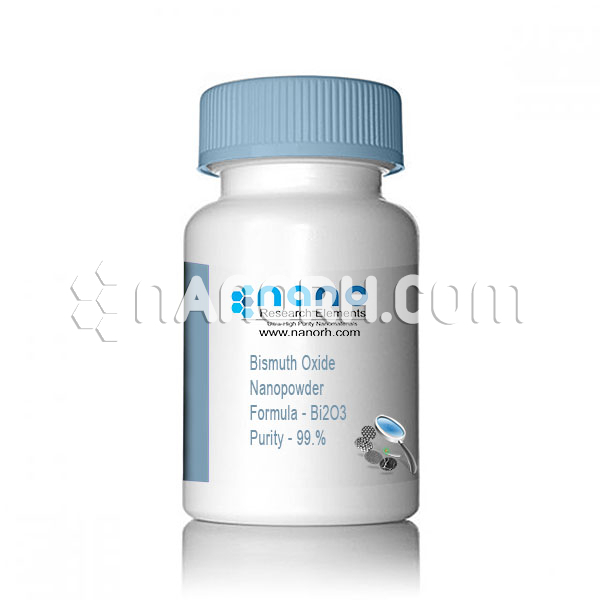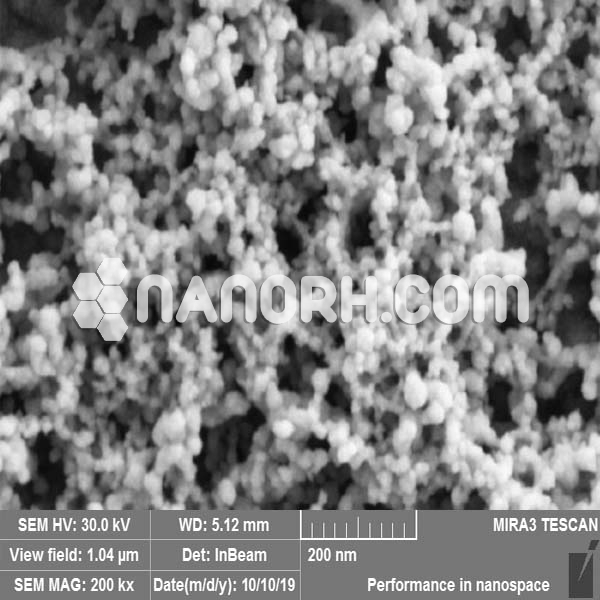| Chitosan Nanoparticles | |
| Product No | NRE-6007 |
| CAS No. | 9012-76-4 |
| Formula | C6H11NO4 |
| APS | <100nm (Can be Customized) |
| Purity | 99.9% |
| Color | White |
| Molecular Weight | 161.15584 g/mol |
| Density | 0.25g/ml(Bulk) |
| Melting Point | 220°C |
| Boiling Point | NA |
Chitosan Nanopowder
Chitosan nanoparticles are natural materials with excellent physicochemical, antimicrobial and biological properties, which make them a superior environmentally friendly material and they possess bioactivity that does not harm humans. Due to these unique properties, chitosan nanoparticles fnd a wide array of applications. Some of them are discussed below. The use of living cells that have been manipulated either by genetically or by their extracellular environment, for developing biological substitutes for implantation into the body or for remodeling tissues through some active mechanism. The purpose of tissue engineering is to repair, replace, maintain or enhance the function of a particular tissue or organ. Chitosan nanoparticles, due to its biological and mucoadhesive properties, can improve transmucosal permeability, thereby enhancing transport through the paracellular pathway of the nanoparticles and can induce structural reorganization of tight junction-associated proteins. Chitosan-based systems have wide and rapidly increasing applications in the food and biochemical industries. Any ingredients can be encapsulated, irrespective of it being hydrophobic, hydrophilic or bacterial. Chitosan retains the bioactivity of macromolecules such as DNA and proteins during encapsulation. Chitosan is widely used in food and bioengineering industries for encapsulation of active food ingredients, enzyme immobilization, as a carrier for controlled drug delivery, in agriculture as a plant growth promoter. Chitosan is also a defense elicitor and an antimicrobial agent. Chitosan has interesting properties such as biodegradability, biocompatibility, bioactivity, nontoxicity and polycationic nature. This review presents structural characteristics and physicochemical properties of chitosan. The methods of preparation of chitosan nanoparticles are detailed. Applications of chitosan nanoparticles are discussed. Applications include drug delivery, encapsulation, antimicrobial agent, plant growth-promoting agent and plant protector.




